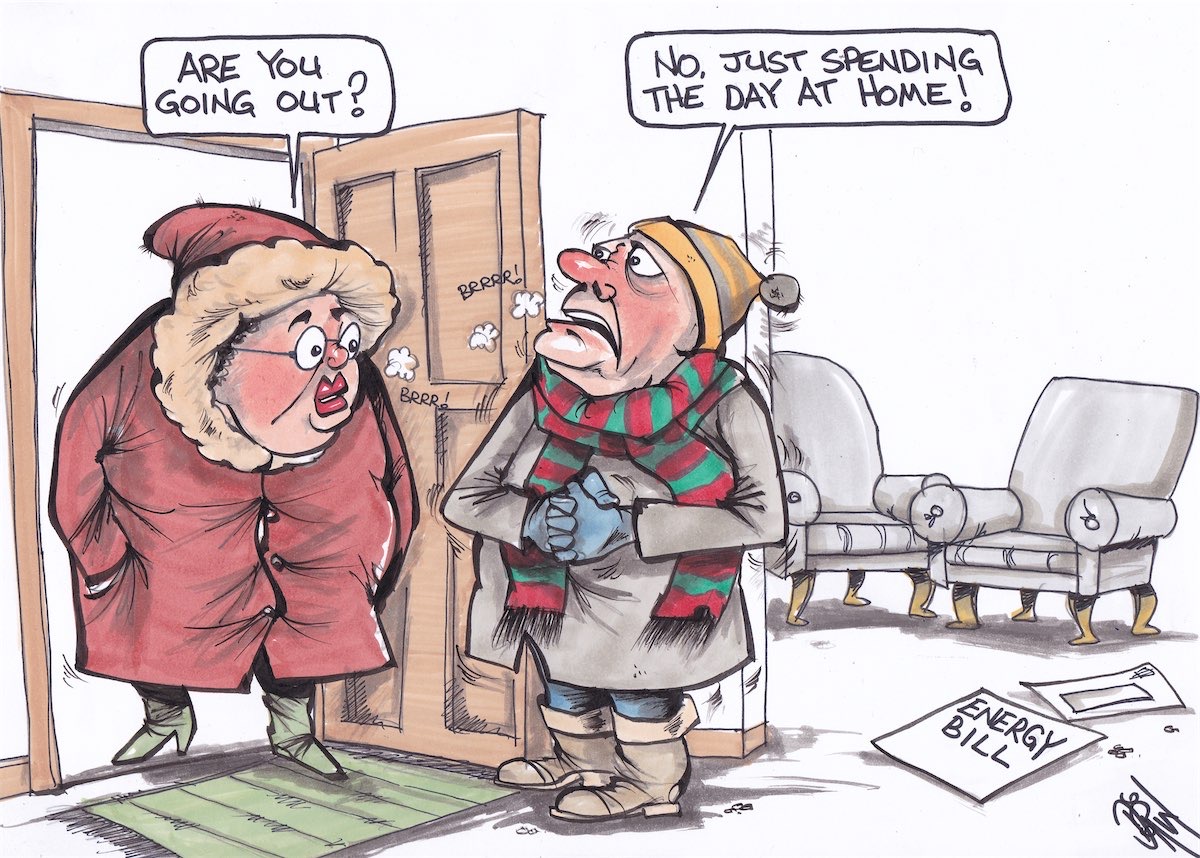
By Poppy Johnston in Canberra
MORE than 5.5 million households and around one million small businesses are in line for energy bill relief in the federal budget.
The Labor government committed to power bill relief as part of its intervention in the energy market last year.
“People will be getting several hundred dollars if they’re on pensions and payments or a small business,” Treasurer Jim Chalmers told ABC News on Sunday.
“But as I said, (the rebate amount is) depending on where you live, depending on what the price pressures are, depending on how much the states and territories are prepared to kick in, because this is a co-investment with them.”
The government has struck separate deals with each of the states and territories as part of the cost-of-living support package targeted at soaring energy prices.
In the lead-up to the May budget, due on Tuesday, the federal government has been cognisant that it is in the challenging position of needing to provide some targeted cost-of-living relief at a time when inflation is high.
The federal coalition also agrees Australia might be on track to land its first budget surplus in years.
Some are predicting a small, albeit temporary, budget surplus for this financial year followed by smaller deficits over the following years.
Dr Chalmers said the budget position would be made clear on Tuesday night.
“What’s already clear, is that you wouldn’t even be asking me this question if we hadn’t taken a really responsible approach to these upward revisions to revenue in the budget – banking almost all of it so that we can get the budget in a much stronger position,” he said.
Dr Chalmers added it was a misconception that commodities were solely responsible for the improvement in the budget bottom line.
Higher commodity prices are responsible for about a fifth of the improvement and the strong labour market has contributed around 40 per cent via lower unemployment and higher wages growth.
“Commodity prices are important, but not the biggest part of the contribution,” Dr Chalmers said.
Financial market economists have tipped the budget to be back in the black in 2022/23 to the tune of up to $2 billion, compared to the previous Treasury forecast in October of a deficit of $36.9b.
The market is also watching to see if Dr Chalmers reveals smaller deficits for the forward estimates period, including a possible $25b deficit in 2023/24 compared to a previously forecast $44b.
Steven Hamilton, an associate professor of economics at George Washington University, said the energy rebates would be expansionary – even if they were included in people’s energy bills – because they would free up money for consumers to spend elsewhere.
He told AAP the measure would mechanically lower the CPI but ultimately any dollar the government spent that ended up in people’s pockets would add to demand, including childcare subsidies and energy rebates.
But Dr Hamilton said some upwards pressure on inflation should be tolerated by the government if it was trying to help those hit hardest by the cost-of-living crisis.
A blanket $40-a-fortnight boost to JobSeeker payments is also reported to be on the cards as the government continues to be pushed to lift the rate of the welfare payment.
Dr Chalmers would not be drawn on a possible increase for all JobSeeker recipients, saying the budget would include a cost-of-living package that was “broader that what has been speculated on”.
Greens social services spokeswoman Janet Rice said the possible increase was even less than the Morrison government’s $50-a-fortnight lift after the pandemic.
“Two dollars and eighty-five cents a day is woefully inadequate and doesn’t even keep up with the rising costs of food and rent,” she said.
Dr Hamilton said lifting JobSeeker would be inflationary but with only 700,000 people on the income support payment the impact would be relatively small.
Shadow treasurer Angus Taylor said helping people into the almost 430,000 vacant jobs should be the priority.
“That’s almost as many vacancies as unemployed Australians. We haven’t seen that ratio in living memory,” he said.
“The priority right now has to be helping people into work and making sure we’ve got downward pressure on inflation when they get into work so that their real wages are strong.”
Mr Taylor described inflation as “a big tax on everyone” and said Australians would pay the price if the budget failed to take the pressure off.
“The critical point here is inflation is impacted by the overall budget, not just any individual initiative,” he said.
Who can be trusted?
In a world of spin and confusion, there’s never been a more important time to support independent journalism in Canberra.
If you trust our work online and want to enforce the power of independent voices, I invite you to make a small contribution.
Every dollar of support is invested back into our journalism to help keep citynews.com.au strong and free.
Thank you,
Ian Meikle, editor









Leave a Reply